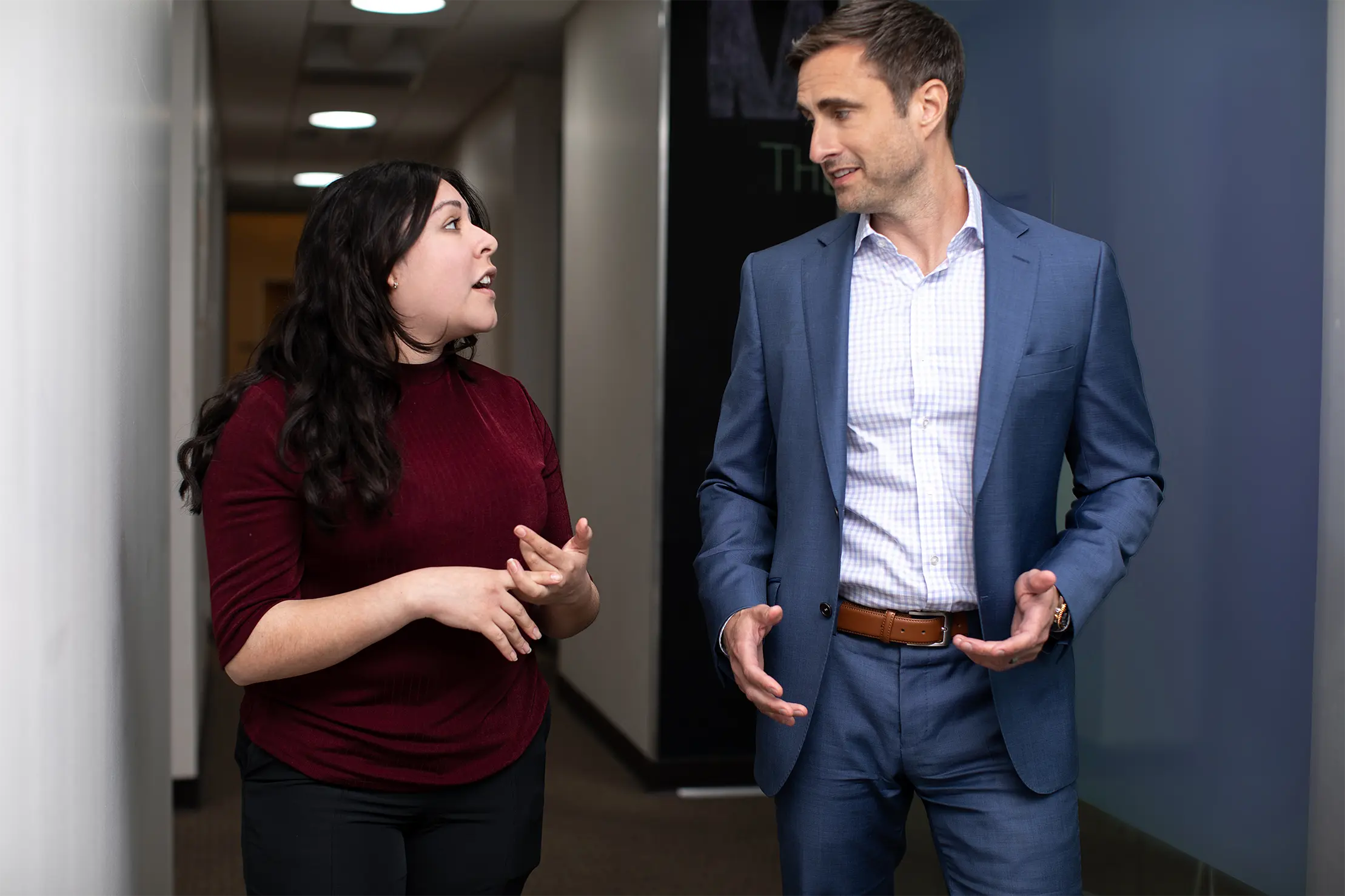When you’re expecting a child or have a new little one at home, you want to take time off work to make sure you get the rest you need and spend quality time with your new child.
Fortunately, as a California worker, you’re entitled to leave options. By knowing your rights, you are better able to protect them. Below is an explanation of what you are entitled to under the law.
California Pregnancy Disability Leave Law
California pregnancy disability leave amounts to time you are legally entitled to take off work when you have a disability directly related to your pregnancy or birth. Under the law, employees can take leave for up to four months or for the duration of the disability, whichever is shorter.
To be eligible, you must be disabled by pregnancy, childbirth, or a related medical condition. Your employer must also be covered by California’s pregnancy disability leave law. A covered employer is one who:
- Regularly employs five or more employees,
- Regularly acts as an agent of a covered employer, or
- Is a state or local government entity.
What Counts as a Pregnancy Disability?
Pregnancy disability leave in California is intended to provide health protections to mothers and their children. When a mother or pregnant woman is unable to perform her essential job functions, she may be eligible for time off.
Covered disabilities vary, but some of the most common examples include:
- Severe morning sickness
- Gestational diabetes
- Preeclampsia
- Doctor-ordered bed rest
- Post-partum depression
- Pregnancy-related hypertension
- Miscarriage
- Emotional recovery from a miscarriage
- Other serious health conditions
This list is not exhaustive. If you are unable to perform the essential functions of your job, you likely qualify as temporarily disabled under California law. When possible, you should give your employer at least 30 days’ notice of your leave.
Which Employees are Eligible for Leave?
Most employees will be able to take leave. You don’t have to be employed by your company for a minimum number of hours or days before you can take pregnancy disability leave. If you have a covered pregnancy disability, you’re entitled to leave. Part-time employees are also eligible.

This pregnant worker could take pregnancy disability leave.
Will I Lose My Job if I Go on Pregnancy Disability Leave?
No, you cannot lose your job when you take pregnancy disability leave. When your disability ends, you’re entitled to return to work in the same position you had when you left or be placed in a similar position to the one you previously held. For most employees, you’ll be able to return to your exact position, but this law provides employers some wiggle room to fill your role if it’s crucial to find a replacement for you while you’re away.
If your employer puts you in a new position when your disability ends, you must be placed in a position with:
- The same hourly rate or salary
- The same benefits
- Similar or identical job duties
- Similar experience and education requirements
- Similar or identical job title
Can I be Terminated While on Pregnancy Disability Leave?
Generally, you cannot be terminated while on pregnancy disability, but there are exceptions. You cannot be terminated because you’re on pregnancy disability leave. But your employer could terminate your position if:
- They conduct mass layoffs that occur during your leave
- Your position was set to be eliminated at a preset time, completely unrelated to your leave
- Your employer filled your position, and there is no comparable position available
California law protects employees in most of these situations. If you were laid off during your pregnancy disability leave, discuss the circumstances surrounding your termination with an employment lawyer.
Will I Get Paid While on Leave?
The law does not require your employer to pay you while on pregnancy disability leave. Your employer may do so, but it is not required.
However, your employer must maintain your full medical coverage and any other health benefits for you. Depending on your employer’s policy, you may also be able to use paid time off (PTO), sick leave pay, or other paid benefits your employer offers.
In addition, you may be able to apply for Paid Family Leave (PFL) or short-term Disability Insurance (DI) with the state of California. Applying for these programs is discussed in detail below.
California Maternity Leave Law: The CFRA
In addition to pregnancy disability leave, the California Family Rights Act provides eligible employees up to 12 weeks off to bond with a new child—whether through natural birth, adoption, or foster placement.
Eligible employees must meet certain requirements to go on leave, but most employers in California are required to provide time off to both mothers and fathers under this law. This same law is also used to care for yourself or a family member with a serious health conditoin.
To go on CFRA leave, an employee must have:
- Worked for the company for at least 12 months, and
- Worked 1,250 hours over the last 12-month period.
Note: You don’t have to choose between pregnancy disability leave and CFRA leave—you can use both consecutively, provided that you are eligible.
Will I Keep My Employer-Sponsored Health Insurance While on Maternity Leave?
As is the case with pregnancy disability leave, your employer is required to continue your medical benefits during maternity leave. Even if your employer isn’t paying you while you’re on maternity leave, they must continue to pay your medical premiums so that you retain your benefits.
How do I Get Paid While on Maternity Leave?
Maternity leave under the CFRA is generally not paid. Some employers compensate their employees on family leave, but the law does not require it. However, if your employer does not pay you, you have several options for getting at least partial payment while you’re out on maternity leave.
Paid Family Leave Fund
California’s Paid Family Leave Act entitles eligible employees to partial pay while taking maternity leave. Under this law, eligible employees may take up to six weeks of paid family leave to bond with their new child. You could be eligible for this paid leave even if you did not have a pregnancy or childbirth disability.
Paid family leave is available for parents of a newborn (mothers and fathers) and those who adopt or foster a child. Eligible employees must take PFL within the first 12 months of the child’s birth or adoption.
The amount of money you’ll receive from PFL will depend on your salary. California limits the amount of money you can get while out on paid family leave, currently set at $1357 per week. Keep in mind that your benefit amount may be less, depending on how much you make.
Short-Term Disability Insurance
Short-term disability insurance offers another option for support during maternity leave. California provides state disability insurance that could provide benefits under this law because of pregnancy or maternity.
This state benefit will pay a portion of your usual wages while you’re temporarily disabled. However, the amount you can receive varies greatly and is capped at $1539.71 per week. The exact amount you can receive will depend on your salary and your base eligibility period.
The base eligibility period is the 12-month period ending the quarter before your disability starts. You must provide pay stubs showing that your employer has withheld at least $300 during the base eligibility period.
IMPORTANT NOTE: This program only applies when you have a disability related to pregnancy or childbirth and is not a benefit you can get when you are simply out on maternity leave.
Employer-Sponsored Temporary Disability Insurance
There is a chance your employer may offer you access to additional disability leave benefits. Insurance companies offer fringe benefits that you can pay for on your own. In some cases, your employer pays on your behalf.
If you have access to these types of temporary disability benefits, you may be eligible for at least partial salary payments during your maternity leave. Check your company’s benefits policy and your insurance documents to find out if you have coverage and how to apply for benefits.
Can I Collect Unemployment While On Maternity Leave?
You cannot collect unemployment while on maternity leave. In fact, you can’t collect unemployment while on most forms of job-related leave. Unemployment insurance is reserved for those who are physically able to work and who are actively looking for a job—not for those who already have a job. If you are on maternity leave, your job position is protected, and you are physically unable to work while you exercise your right to bond with your new child.
Can I Get Fired or Demoted for Taking Maternity Leave?
As discussed above, you are entitled to the same or equal position when you return from maternity leave. You certainly cannot be fired or demoted for taking leave, nor can you be discriminated against in any way. But that doesn’t mean it never happens.
Pregnancy and maternity discrimination occur when you receive less favorable treatment because of your pregnancy or maternity leave. This type of discrimination can take many forms. It may include termination, but it is often more subtle. Here are some common ways employers discriminate against pregnant workers or new parents:
- Firing or demoting you because you took time off work to bond with your child
- Refusing to hire a pregnant woman
- Refusing to hire a recently married woman, thinking she might get pregnant soon
- Denying your time off, even unpaid, for childbirth or medical conditions related to pregnancy and childbirth
- Refusing to allow you breaks to breastfeed, pump, or treat a pregnancy or childbirth related medical condition
Most employers treat employees well and understand that pregnancy and childbirth are natural processes that require additional time off work. Unfortunately, some employers are less kind.
If you find yourself in a situation where you’re being discriminated against because of your pregnancy or childbirth, keep detailed records of your pregnancy or maternity leave request and your employer’s response. Keep records of your treatment when you return to work. These are serious matters for which you may be able to take legal action.
To find out your legal options, contact PARRIS today to speak with an experienced California employment lawyer. You have rights, and we can help you protect them.


